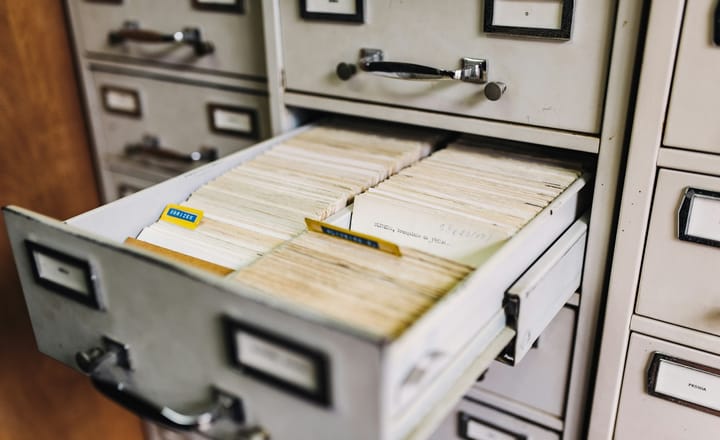What every parent should know about their teenager's naps and memory

Neuroscience has long shown that sleep plays a critical role in how the brain encodes, stores, and retrieves memories.
While full overnight sleep is essential for long-term brain health and learning, researchers are investigating if even brief naps can change brain function and memory performance in meaningful ways. Particularly they have been studying if naps could enhance learning in students.
That would challenge traditional views that only deep sleep or REM (Rapid Eye Movement) sleep contributes meaningfully to cognitive function.
The 4 Sleep stages
Sleep has different stages that repeat in cycles throughout the night. Further, sleep is divided into non-REM and REM stages.
Non-REM includes Stage 1, the lightest sleep, where brain activity begins to slow.
Stage 2 features brain waves in bursts of activity and is linked to memory processing.
Stage 3, or slow-wave sleep, is the deepest stage. It is called deep sleep and is critical for physical recovery and clearing waste from + restoring the brain.
After the deep sleep comes the stage of REM sleep where your brain is very active. It involves rapid eye movements, vivid dreaming, and heightened brain activity, supporting emotional regulation and memory consolidation.
The full sleep cycle lasts about 90 minutes and repeats multiple times per night, with different stages serving distinct neurocognitive functions.
What we already know about sleep and student's memory
Scientists have tested various tricks to improve memory in students, like adding surprises to a lesson or using emotional cues to make facts stick better. Yet, one of the most promising and practical approaches may be as simple as letting students rest.
When students sleep well, they remember more. Research shows that delaying the start of high school by just 30 to 60 minutes can lead to better sleep, higher attendance, and improved grades.
In younger children, taking a nap after learning also strengthens memory. Even a midday nap during the school day has been shown to help preschoolers and teenagers alike remember what they learned earlier.
Recently, one study found that when high schoolers were exposed to specific smells during sleep that reminded them of a history lesson, they remembered more the next day.
Teen sleep patterns and school schedules
Teenagers have naturally later sleep cycles, which makes it hard for them to get up (yes, it is a real biological thing) and to get enough rest before early morning classes.
This lack of sleep can affect their ability to form new memories. That's because when people stay awake for too long, the brain’s synapses (the connections between brain cells) get overstimulated.
During waking hours, brain cells form new connections as we learn and interact with the world. But this constant buildup of new connections comes at a cost: with increasing time awake, the brain becomes gradually less efficient at encoding new information.
One theory, called synaptic homeostasis, suggests that deep sleep helps reset or downscale these connections, resetting the brain and allowing for new learning the following day. This resetting happens during a type of our deepest sleep, at stage 3 in the sleep cycle.
Interestingly, some studies now show that even shorter naps that don’t include deep sleep may still improve learning. These benefits have been linked to sleep spindles, which are brief bursts of brain activity that happen mostly during the lighter sleep stages.
This opens up the possibility that short naps without deep sleep could still offer memory benefits. But until recently, there was little data about how effective such short naps might be in a real school setting.
The study: Naps before a biology class
In one recent real-world study, researchers equipped high school students with EEG headbands to monitor their brain activity during short naps before learning new material. One group took a nap in the school library while wearing these brainwave monitors. The other group stayed awake in their classroom talking quietly with a teacher.
After the nap or quiet time, both groups received the same biology lesson from their regular teacher and were then immediately tested on what they had learned. The two groups had similar academic records overall, making their results comparable.
Those who reached at least Stage 1 sleep during a 20-minute rest period showed significantly better performance on memory tests than their peers who stayed awake.
Surprisingly, the memory boost did not seem to depend on whether the student reached deep sleep stages or even the amount of time spent in the non-REM sleep stages.
One possible explanation is that sleep inertia - the grogginess that occurs right after waking - may have affected students who slept longer.
Since there were only 20 minutes between waking up and the biology class, the brain might not have had enough time to fully recover, especially after deeper sleep stages.
Despite this, those who had short, light naps still remembered more than their peers who stayed awake.
What makes light sleep so special?
Stage 1 sleep, often dismissed as merely a transitional phase between wakefulness and deeper sleep, is increasingly being recognized as neurologically active and functionally important in memory science.
Although it typically lasts only a few minutes, Stage 1 is associated with the gradual reduction of sensory awareness and the emergence of dream-like thoughts that arise as consciousness fades. This early phase of sleep may play a role in helping the brain make creative connections or spot hidden patterns.
One study found that people who spent more time in this light sleep were better at solving puzzles involving hidden rules. Other research has shown that dream imagery during this stage, also called dream incubation, can help with creative thinking.
Even short bursts of light sleep may help store information in memory. For example, a recent study showed that a 30-minute nap improved students’ ability to recall information several hours later. This suggests that the act of resting, even briefly, may refresh the brain just enough to improve learning.
In this high school study, the researchers found that more light sleep, especially the lightest “Stage 1, was linked to better performance. In contrast, more deep sleep or sleep spindles did not predict better results and might have been affected by sleep inertia.
These findings challenge older views that only deep sleep helps memory and suggest that short, light naps might be an underused tool for boosting learning.
Practical takeaways
This study also had the advantage of being realistic. Students napped in the same school environment they learned in—no fancy sleep labs, no beds.
They slept at tables with their heads resting on their arms, just like students might do in a typical classroom during a break. That means schools could adopt similar strategies with very little effort or cost.
Overall, the study supports the idea that even short naps, under 20 minutes, can improve how students learn if timed well. The key seems to be reaching at least the first stage of sleep without dipping into deeper sleep which could lead to grogginess afterward.
Well, and that would probably also work .. at work .. for the rest of us. So next time you talk to your boss, show this blog post and ask for permission to nap during work hours.
About the scientific paper:
First author: Vanessa Vidal, Argentina
Published: Nature Science of Learning, March 2025
Link to paper: https://www.nature.com/articles/s41539-025-00307-4




Comments ()